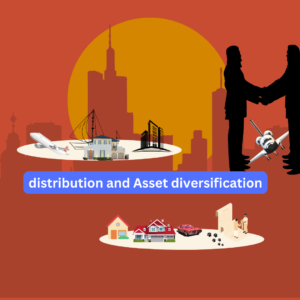1.Define perseverance and its importance in personal and professional contexts
2. Finding Strength in Unlikely Friendships
3. The Role of Laughter in Overcoming Life’s Challenges
4. Analyze the role of failure and setbacks in fostering resilience.
5. Gather quotes or insights from renowned figures on perseverance.

1. Define perseverance and its importance in personal and professional contexts
Perseverance is the quality of continuing to try and achieve something, even when it is difficult or takes a long time. It is the ability to keep going, even when you want to give up.
Perseverance is important in both personal and professional contexts. In personal life, it can help you achieve your goals, overcome challenges, and build resilience. In professional life, it can help you succeed in your career, build relationships, and solve problems.
benefits
- Increased success: Ultimately, perseverance is often the key to achieving your goals. By sticking with it, even when things get tough, you increase your chances of success.
- Improved problem-solving skills: Perseverance often requires finding creative solutions to difficult problems. This can help you develop your problem-solving skills and become a more resourceful person.
- Stronger relationships: People who persevere are often seen as reliable and determined. This can help you build strong relationships with others, both personally and professionally.
Tips :
- Focus on the process, not just the outcom
- Don’t give up
- Learn from your mistakes
2. Finding Strength in Unlikely Friendships
At first glance, two individuals may seem worlds apart. Yet, shared experiences, passions, or challenges can bridge these gaps. Whether it’s a love of a particular hobby, a shared struggle, or a common goal, these shared experiences can form the foundation of a deep and meaningful friendship.In a world often divided by differences, the power of unlikely friendships can be a beacon of hope and understanding. These connections, forged across cultural, socioeconomic, or generational divides, offer unique opportunities for personal growth and societal harmony.
Learning and Growth
Unlikely friendships often push us outside our comfort zones. By interacting with people from different backgrounds, we are exposed to new perspectives, ideas, and ways of life. This can broaden our horizons, challenge our assumptions, and foster empathy and understanding.
3. The Role of Laughter in Overcoming Life’s Challenges
Laughter, often underestimated, is a powerful tool that can significantly impact our mental and emotional well-being. It can help us navigate through life’s challenges, reducing stress, boosting our mood, and strengthening our resilience.
The Science of Laughter and The Emotional Benefits of Laughter
- Increased Resilience: Laughter can help us cope with adversity and bounce back from setbacks.
- Stress Relief: Laughter can help us relax and unwind, reducing the negative effects of stress on our bodies and minds.
- Improved Mood: A good laugh can instantly lift our spirits and make us feel happier.
- Enhanced Social Connection: Shared laughter can strengthen bonds with others and foster a sense of belonging.
4. Analyze the role of failure and setbacks in fostering resilience.
Failure and setbacks are often seen as negative experiences, but they can actually be powerful catalysts for personal growth and resilience. By embracing these challenges, individuals can develop the mental fortitude to overcome obstacles and emerge stronger.
how failure and setbacks can foster resilience
Building Mental Toughness
- Developing a Growth Mindset: By viewing setbacks as opportunities for learning and improvement, individuals can cultivate a growth mindset, which is essential for resilience.
- Overcoming Adversity: When individuals face and conquer challenges, they develop a sense of mental toughness.
Boosting Self-Confidence
- Celebrating Small Wins: Recognizing and celebrating small victories can help maintain motivation and self-esteem.
- Gaining Experience: Each setback is an opportunity to gain experience and build confidence in one’s abilities.
Learning from Mistakes
- Acquiring New Skills: By analyzing mistakes, individuals can learn new skills and strategies to avoid similar pitfalls in the future.
- Identifying Weaknesses: Failure can highlight areas where improvement is needed.
5. Gather quotes or insights from renowned figures on perseverance.
Abraham Lincoln: “I am a slow walker, but I never walk back.”
Muhammad Ali: “It’s the repetition of affirmations and visualizations that bring dreams and goals into reality.”
Nelson Mandela: “It always seems impossible until it’s done.”




